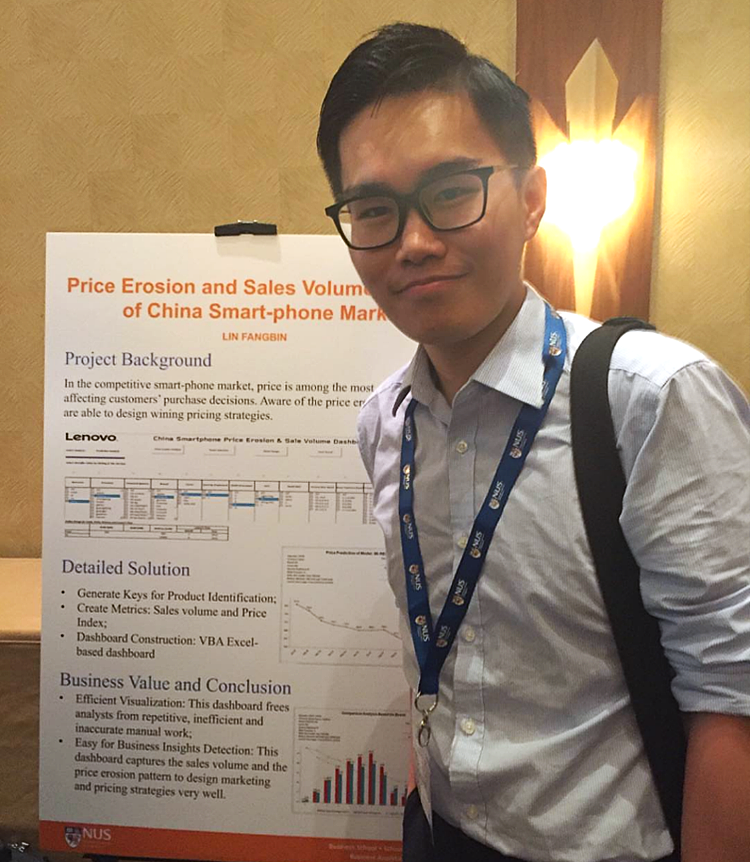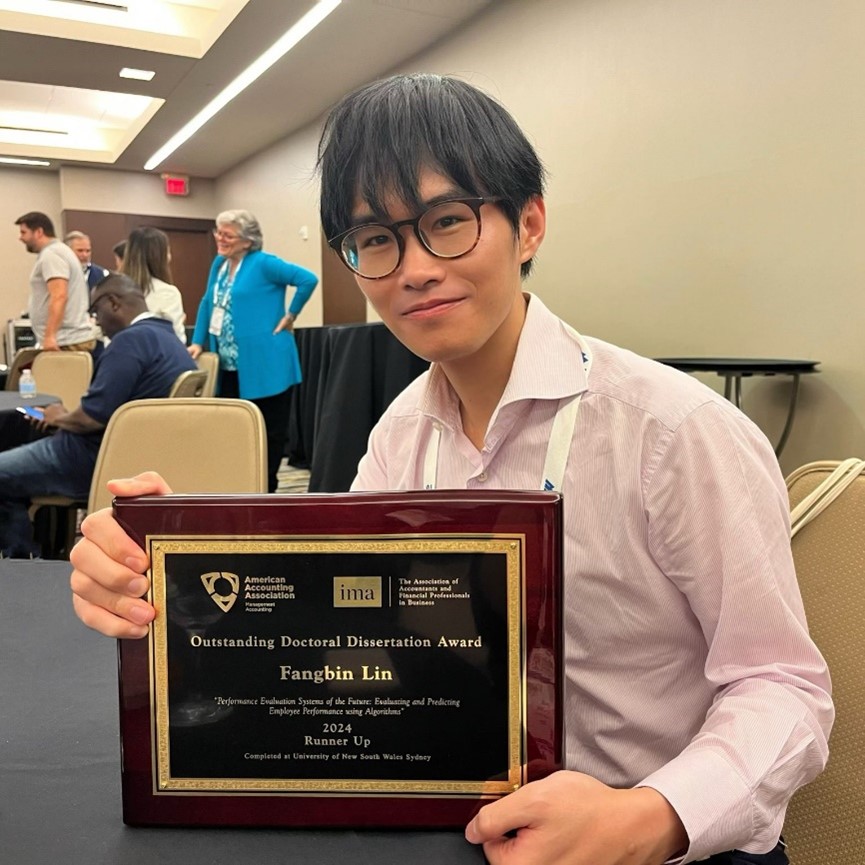The evolving landscape of data analytics is reshaping industries, and few stories highlight this transformation as clearly as that of Fangbin Lin. A 2015 graduate of the NUS Master of Science in Business Analytics (MSBA) programme, Fangbin’s journey from finance graduate to data analyst, and now lecturer in accounting at the University of Auckland, reflects the growing importance of interdisciplinary knowledge in today’s world.
Recently, his doctoral dissertation earned the runner-up spot for the 2024 AAA MAS Outstanding Doctoral Dissertation Award, underscoring his contributions to the field. His story is one of continuous learning and adapting, shaped by his time at NUS MSBA.

Switching Gears: From Finance to Business Analytics
Before joining the NUS MSBA programme in 2014, Fangbin had already earned his bachelor’s degree in finance from the Capital University of Economics and Business in Beijing. It was his keen observation of the rising role of data in business decisions that motivated him to switch to business analytics.
“NUS was among the few top-tier universities offering a Master’s in Business Analytics back then, and the programme’s reputation of being one of the top ranking business analytics programme, combined with Singapore’s vibrant business landscape made it the ideal choice for me,” Fangbin recalls.
This decision to switch from finance to business analytics was driven by a desire to stay at the forefront of business trends and to acquire skills that could open doors to a wider range of career opportunities.
A Programme that Equips for Industry
The structure and design of the NUS MSBA programme had a direct impact on Fangbin’s career development. “The curriculum ensured that I not only gained data analytics skills, but also knowledge of how to apply the skills in business contexts wherein they are needed. The skills, along with the practical knowledge of how to apply them, have laid a solid foundation for my career in both industries and academia,” he shares.
The industry engagement opportunities provided by the programme enabled him to connect with the guest speakers from the partner companies, leading to many interview opportunities. Furthermore, working with Lenovo during his capstone project not only gave him practical experience but also led to a job offer. Fangbin spent nearly three years as a data analyst at Lenovo’s Global Analytics Hub, performing predictive analytics and data visualisation for internal stakeholders.
NUS MSBA Student Life and Memorable Moments
Reflecting on his time at NUS, Fangbin fondly remembers collaborating with his peers on real-world projects. One of his most memorable experiences was analysing sales data for an Australian bicycle retailer as part of a group project. “That project was a turning point for me because it showed how the skills we were learning could directly help a business improve its operations.”
He also recalls presenting his capstone project at the 2015 Business Analytics Technical Evening, now called NUS Business Analytics Centre Symposium (BACS). “It was a moment of pride for all of us, bringing our cohort together to showcase what we had achieved during the programme to the industry partners, faculties and fellow students.”

From Industry to Academia
While working at Lenovo, Fangbin realised a tension relating to the implementation of analytics solutions within companies. His industry experience inspired him to join academia to research the behavioural implications due to the use of data analytics. This led him to pursue a PhD at UNSW Sydney, where his research focused on the behavioural implications of using algorithms in managerial decision-making.
His doctoral dissertation, Performance Evaluation Systems of the Future: Evaluating and Predicting Employee Performance using Algorithms, earned him the 2024 AAA MAS Outstanding Doctoral Dissertation Award Runner Up. “It was an honour to have my work recognised, especially so as I am the first PhD graduate from an Australian university to win a dissertation award from the American Accounting Association in its management accounting section,” Fangbin says modestly.
The dissertation explored how companies can better implement data analytics systems, focusing on the human factors that often create resistance to these tools. Fangbin also felt honoured as the award signals to the public that accounting academia has started realising the values that data analytics can bring to organisations, but also the challenges relating to its effective implementation. To learn more about the award, you may visit the AAA website.

A Well-Rounded Experience
For Fangbin, the NUS MSBA programme offered more than just technical knowledge—it provided a holistic experience that set him on his current path. “The combination of theoretical learning and industry engagement was invaluable,” he notes.
Looking back, Fangbin encourages future students to embrace the diverse opportunities that the NUS MSBA programme provides. “Whether you’re aiming for a role in industry or academia, the programme gives you the skills, connections, and confidence to pursue your goals.”
© National University of Singapore. All Rights Reserved.